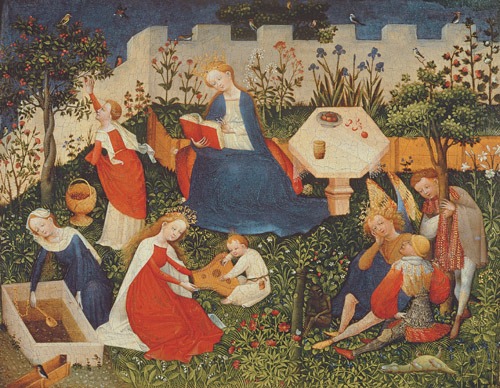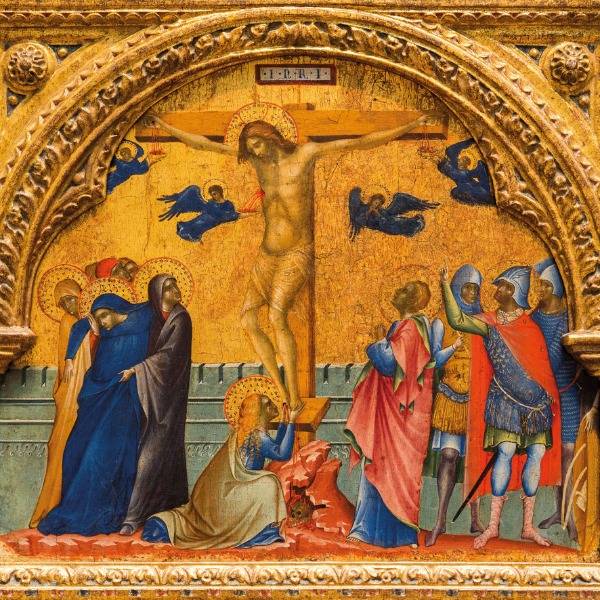
This article is a preview from the Winter 2015 edition of New Humanist. You can find out more and subscribe here.
Those of us who think of ourselves as humanists, secularists and atheists tend to regard the history of religious ideas as an intellectual wasteland. We like to think that believers have always accepted the same set of ideas about life after death, the existence of God and the prospect of divine rewards and punishments; we assume that these half-baked ideas were passed down from one generation to the next, unexamined and unaltered; and we imagine that the process continued uninterrupted till three or four centuries ago, when the human mind awoke from its slumbers and the Enlightenment began.
This version of events may be uplifting as a priori philosophy, but it is hopeless as history. Religious believers often imagine that they are merely upholding venerable traditions, but their intellectual life is typically in turmoil: they are constantly discovering new problems and responding with criticisms, revisions and conceptual innovations. To us, the theists of the past may look as if they all subscribed to a monolithic set of beliefs, but as far as they were concerned there was never very much that was not in need of transformation, defence or repair. Moments of close harmony were rare, and always liable to modulate into massive discord.
Religious believers are of course subject, like anyone else, to sectarian pettiness, and to what Sigmund Freud called the “narcissism of small differences”. Edward Gibbon – a pioneering secularist and an Enlightenment author if anyone was – maintained that differences amongst Christians were very small indeed. In The History of the Decline and Fall of the Roman Empire, which started to appear in the 1770s, Gibbon maintained that throughout history Christian doctrine had never really changed. The fanatical teachings of Jesus had been codified, as he saw it, by a band of impoverished Jews obsessed with keeping themselves “pure and undefiled”; these doctrines were then adopted by the ruling class of the Roman Empire, and diffused round the Mediterranean and into the most remote corners of Europe; and in the end they corroded the structures of political authority on which they had come to depend. After biting the imperial hand that fed it, Christianity sank, according to Gibbon, into a prolonged age of darkness. But as far as he could see, the Christians had never questioned their beliefs, and any supposed alterations of opinion were, as he put it, “invisible even to a theological microscope”.
In reality the disagreements amongst believers were far larger than Gibbon and his followers have been prepared to acknowledge; and no one has done more to explain them to modern readers than the British historian Peter Brown. Almost 50 years ago, Brown produced a celebrated biography of St Augustine, the north African bishop who developed a systematic account of Christian doctrine at the beginning of the fifth century; and since then he has not ceased to bring insight, variety and excitement to the study of Mediterranean and European culture during what he calls “late antiquity”. He seems to have read all the sources – texts, inscriptions and graffiti in more languages than most of us could name – and in a dozen substantial books he has transmuted these materials into fluent narratives combining sympathy for alien ways of life with insights from philosophy, anthropology and social history. Through his labours, the landscape of early Christian thought has been transformed from a desert of stupid superstition into an arena of creative intellectual debate.
In his latest book, The Ransom of the Soul, Brown offers an exhilarating survey of attitudes towards death, mourning and the afterlife in late antiquity, and their connections to money, politics and social justice. He reminds us that the Christians of the third century were still an insurgent minority, inspired by what he calls a “countercultural longing for a religious community” – a form of community at loggerheads with the blatant inequalities of wealth and status that prevailed in the world around them. They also believed that Christ was going to return to earth in a matter of weeks or months or at most a few years, and that he would then preside over an earthly paradise in which the faithful dead would join the rest of his followers in endless celebrations of their victory over paganism, sin and death itself.
Two centuries later, Christian certainties were in disarray. Believers had to recognise that their messiah was taking far longer to return to earth than any of them had imagined. (If you are a socialist with a sense of history, you will know how they must have felt.) They could not carry on assuming that the dead were going to rise from their graves like sleepers waking from a nap: they realised that the bodies of the waiting dead were not in any condition to resume their former functions, and they also started to face up to the question of what activities the souls of the dead could engage in while waiting for their bodies to be resurrected.
To complicate matters further, the church was running into problems of worldly success. Christianity was on its way to encompassing Roman society as a whole, and its followers now included hundreds of thousands of ordinary people who were not “altogether good”, but not “altogether bad” either. Christians began to suppose that the souls of the departed spent their time trying to make amends for their sins, and they started to draw up graduated schemes of reward and punishment – systems of moral taxation, in effect, designed to account for different grades and qualities of guilt. Augustine tried to turn back the tide of speculation by arguing that the living could never understand the world of the dead; but he went along with the idea that the afterlife is fraught with dangers, and that the faithful here on earth should do everything in their power to support the souls of the deceased in their quest for salvation.
On top of that there were difficulties about the sort of existence that could be attributed to the soul. Paradise was starting to be seen as heavenly rather than earthly, and, as Brown puts it, “the distance between heaven and earth seemed to yawn more widely”. Augustine went so far as to ask his fellow Christians to give up their attachment to the earthly body, maintaining that the soul was a spiritual entity, completely distinct from matter. But that theory was closer to the pagan philosophy of the Greeks than to anything in the Bible or the gospels, and most Christians were unwilling to accept it: they could not see how a soul without a body could have an individual identity, or any real connection with a life that had been lived on earth.
Despite Augustine, therefore, they persisted in taking an unplatonic interest in the fate of dead bodies, and they aspired to have their corpses enclosed in stout coffins, inscribed with their names to prevent confusion, and buried in the vicinity of the mortal remains of saints, or at least in a sanctified building or consecrated ground.
Unfortunately these burial practices were in obvious conflict with the teachings of Jesus: instead of favouring the meek and the poor, they gave enormous spiritual advantages to rich grandees. To make matters worse, the recommended technique for interceding on behalf of the dead – repeated prayers asking God to have mercy on their souls – offered the rich further opportunities to jump the queue: they could pay for prayers on behalf of their friends and family, and endow colleges, chapels or religious houses on condition that they say prayers for their benefactors in perpetuity.
Augustine did his best to block the plutocratic path to salvation, telling the rich that if they wanted to be saved, they would have to give large sums to the church, not for their own sakes but to fund the relief of poverty together with prayers for the souls of the poor. This was a novel idea, and as Brown points out it involved a far-reaching revolution in “the social imagination”. Early Christianity, like Judaism, was a tribal religion, and social obligations were not seen as extending beyond the limits of the tribe. In the same way, the civilisations of Greece and Rome rested on loyalty to individual cities, and acts of civic generosity – gifts of public buildings or circuses, games or races – were designed not to assist the poor but to enhance the magnificence of the city, and no doubt the donor as well. But the new Christian doctrine of death and charity involved a move from what Brown calls a “closed” moral universe to an “open” one, throwing down an implicit challenge to the social assumptions of both Jerusalem and Rome. From now on, he says, the rich would be expected to spend their money not on themselves or their cities, but on the “faceless mass of the poor”. Some teachers advocated a total renunciation of wealth, but Augustine advised the rich to retain their capital so that they could carry on giving to the poor, year after year, world without end. Either way, they could be assured that they were making a sound investment, building up “treasure in heaven” by directing their generosity not to particular people or groups, but simply to the wretched of the earth.
Contrary to what many of us have supposed, the decline of the Roman Empire did not leave Europe at the mercy of lawless hordes: Roman administrative structures were largely preserved, as Brown shows, and gradually taken over by new elites; and Christianity survived as a dominant part of them, constantly repeating its message about the obligations of the rich towards the poor. As any cynic can see, the doctrine favoured the financial interests of the church; but at the same time it served to entrench the idea that we owe a duty not just to our friends and comrades, but to our fellow human beings as such. This theme has since been recognised as the fundamental principle of modern humanism; but it was first worked out, it would seem, in the tumultuous intellectual world of the Christians of late antiquity.
Peter Brown’s “The Ransom of the Soul: Afterlife and Wealth in Early Christianity” is published by Harvard.

